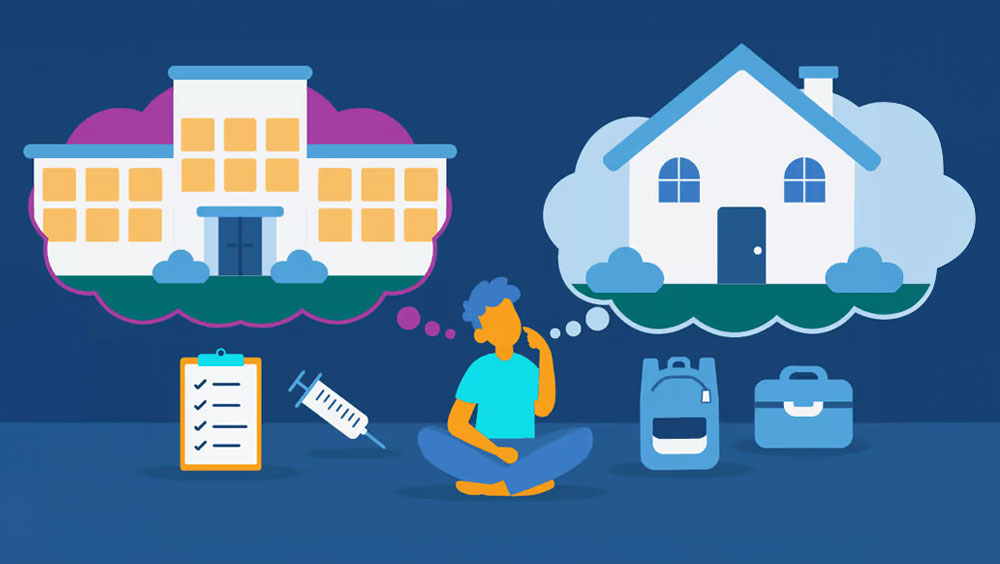Navigating the landscape of mental health care can often feel overwhelming, particularly when faced with the decision between inpatient and outpatient programs. Each option carries its own set of benefits and challenges, and understanding these nuances is crucial for individuals seeking the most suitable approach to their mental health needs. By delving into the distinctions between inpatient and outpatient care, individuals and their loved ones can make more informed decisions, tailoring their treatment paths to best facilitate recovery and well-being.
Defining Inpatient VS Outpatient Mental Health
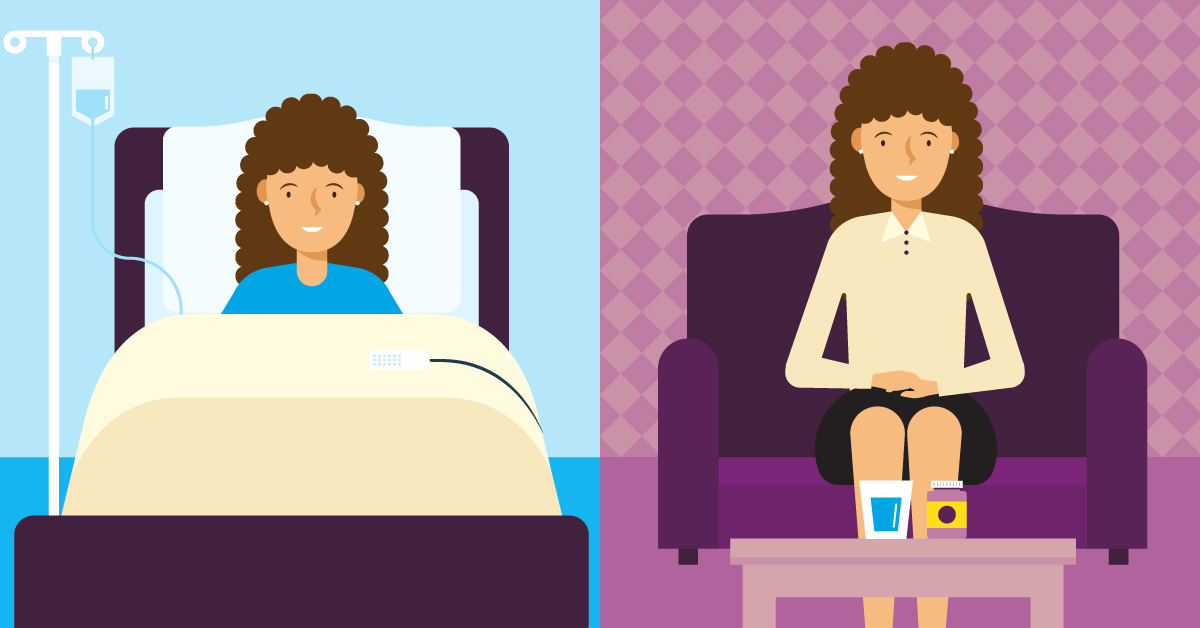
Outpatient mental health programs, on the other hand, offer a more flexible approach to treatment, allowing individuals to live at home while attending scheduled therapy sessions and appointments. This type of program is ideal for those who require continued support but do not need the intensive level of care provided by inpatient facilities. Outpatient treatment allows individuals to maintain their daily routines, stay connected with their support networks, and apply learned strategies in real-world environments. It is often a suitable step-down option for those transitioning from inpatient care or a starting point for individuals whose conditions are manageable without hospitalization. Ultimately, the choice between inpatient and outpatient care depends on the severity of the individual's mental health needs, the level of support required, and the treatment goals established in partnership with healthcare professionals..
What Is Outpatient Mental Health Treatment?

Outpatient mental health treatment offers a flexible and supportive environment for individuals seeking to address their mental health needs. By allowing patients to reside at home, this approach provides the opportunity to integrate learned coping strategies and therapeutic insights into their everyday lives, facilitating real-world application and growth. Patients can continue to engage with their community, uphold personal and professional obligations, and access support networks. This format not only fosters autonomy and empowerment but also bridges the gap for those transitioning from more intensive inpatient care. As individuals progress through their unique recovery journeys, the consistency of outpatient therapy and medical appointments helps to build resilience and promote long-term wellness..
Benefits Of Outpatient Therapy For Mental Health
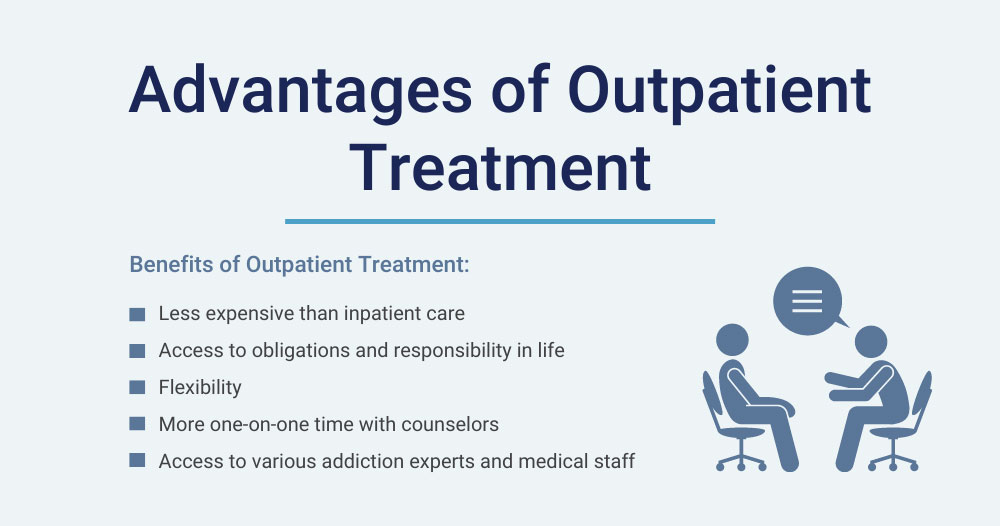
Outpatient therapy for mental health also fosters a sense of autonomy and empowerment among patients, as it enables them to take an active role in their own healing journey. By regularly engaging in therapy while continuing to navigate daily life, individuals can more seamlessly integrate therapeutic insights into their everyday interactions, enhancing the effectiveness of treatment. This model often results in a collaborative therapeutic process where patients can immediately bring real-life challenges back to therapy sessions, receiving timely guidance and support. Moreover, outpatient therapy's flexible nature can reduce the stigma associated with seeking mental health care, as it allows individuals to maintain their normal routines, encouraging more people to seek the support they need without feeling like they have to step away from their lives entirely..
Comparing Outpatient VS Inpatient Mental Health
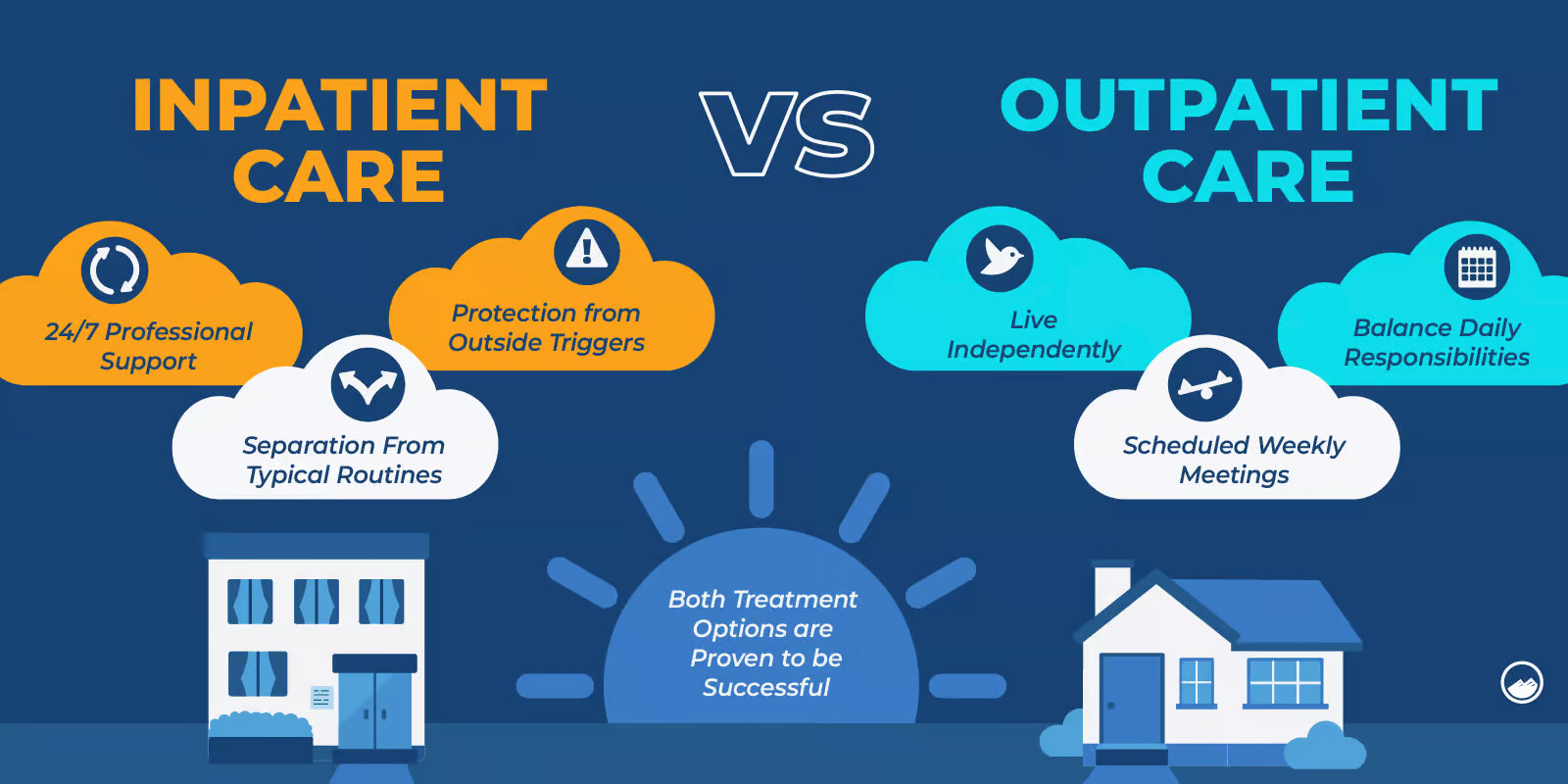
When evaluating outpatient versus inpatient mental health care, the decision often hinges on the specific needs and circumstances of the patient. Inpatient care is ideal for individuals requiring immediate, intensive support and monitoring, particularly during acute episodes or when there's a significant risk of harm to themselves or others. The structured, round-the-clock assistance of inpatient facilities ensures comprehensive care, often encompassing a range of therapies to stabilize a patient swiftly. On the other hand, outpatient programs are designed for those who need ongoing support but are stable enough to manage their daily responsibilities. These programs emphasize the application of therapeutic strategies in real-world settings, facilitating personal growth and resilience while offering flexibility and autonomy. Ultimately, the choice between inpatient and outpatient care should be guided by a thorough assessment of the patient's clinical condition, support network, and personal preferences, aiming to provide the most effective path to recovery and well-being..
What Is A Mental Health Outpatient Program?
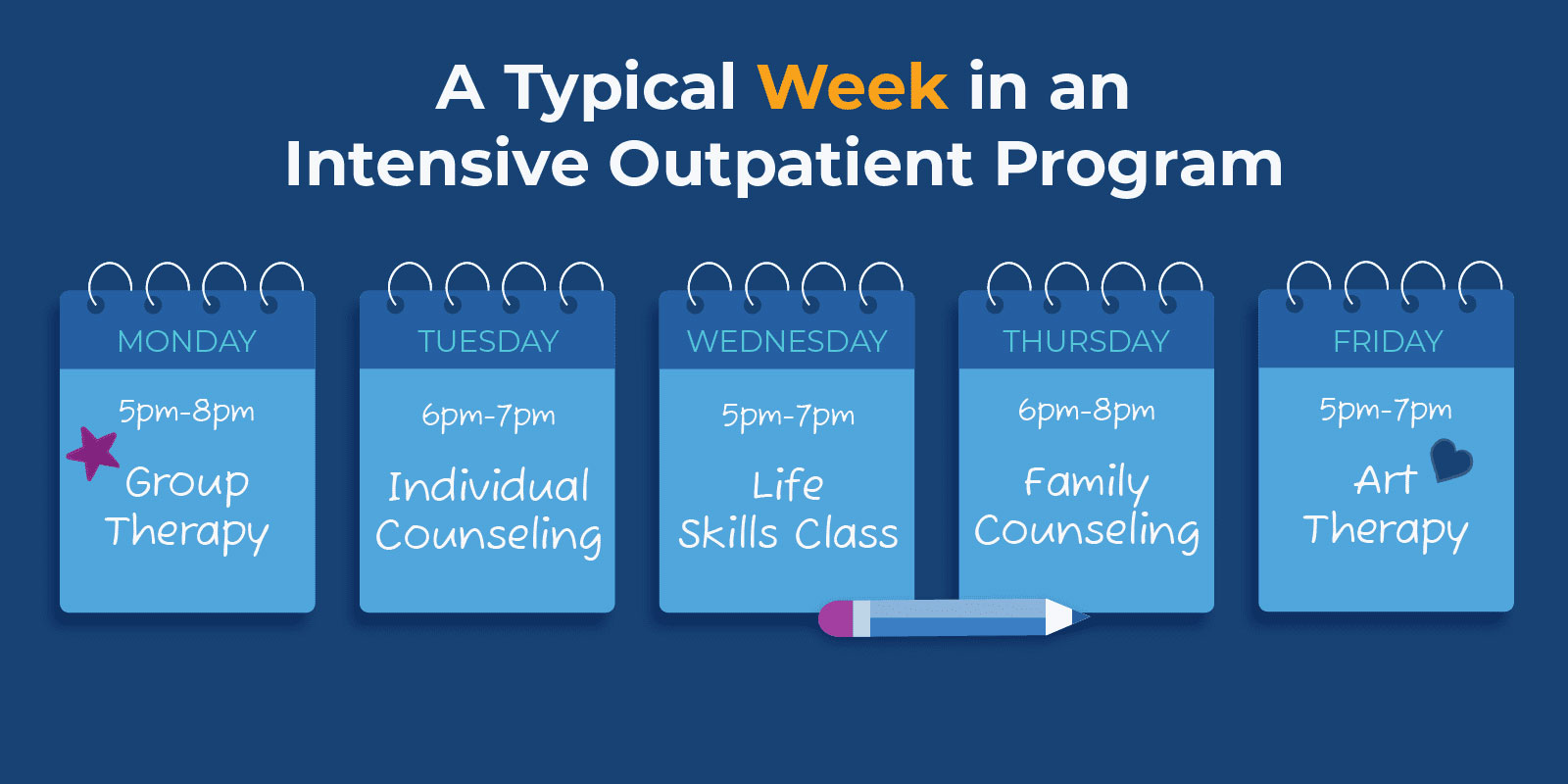
A mental health outpatient program is crafted with the utmost care to cater to the distinct needs of each participant. Integral components of these programs often encompass individual therapy sessions, where clients engage in one-on-one discussions with professionals to delve deeper into personal challenges and develop effective coping strategies. In addition to individual therapy, group therapy is frequently utilized, creating a supportive environment where individuals can share experiences and learn from one another. Medication management is another crucial aspect, ensuring that any prescribed medications are effectively aiding the recovery process while monitoring for potential side effects. Furthermore, lifestyle education plays a pivotal role, imparting knowledge on healthy habits that can enhance mental well-being. These programs are adept at addressing a wide range of conditions, such as anxiety, depression, or substance abuse, utilizing proven, evidence-based methodologies that not only aim to alleviate symptoms but also foster enduring personal growth and resilience..
Exploring Different Outpatient Program Mental Health Options

Outpatient mental health programs are designed to provide flexible and diverse support options that align with individual needs and life situations. These programs can vary widely in their format, duration, and intensity, ensuring that individuals can access the level of care that suits their circumstances. Some individuals may benefit from weekly therapy sessions, which offer a consistent touchpoint for therapeutic support without overwhelming their daily schedule. Others might require the comprehensive care available through day treatment programs, which provide structured activities and interventions multiple times a week. Specialized outpatient programs are often tailored to address unique therapeutic needs, employing modalities such as cognitive-behavioral therapy (CBT) to reshape negative thought patterns, or dialectical behavior therapy (DBT) to enhance emotional regulation and interpersonal effectiveness. By focusing on specific therapeutic techniques, these programs aim to foster resilience and improve mental health outcomes for those facing particular challenges. As a result, outpatient programs can be a lifeline to individuals seeking practical and targeted mental health support, facilitating meaningful progress in a manageable, outpatient setting..
How Long Is An Inpatient Mental Health Stay?

The decision regarding the length of an inpatient mental health stay is a collaborative process involving mental health professionals, the patient, and often their family. It begins with a comprehensive assessment to understand the individual's specific needs and situation. Factors such as the presence of co-occurring disorders, the individual's support system outside the facility, and any previous history of mental health issues can significantly influence the recommended duration of the stay. Clinical teams usually set personalized treatment plans that involve a combination of medication management, individual and group therapy, and other therapeutic activities designed to promote stability and recovery. As patients progress, their response to treatment is continuously evaluated to determine if adjustments are necessary. For some, a step-down to outpatient care or partial hospitalization programs may be appropriate once initial stabilization is achieved, to ensure continued support and reduce the risk of relapse. Therefore, the focus remains on providing a tailored approach that safely transitions individuals back to their daily lives with improved coping skills and resilience..
Evolution Of Outpatient Mental Health Programs

Outpatient mental health programs continue to leverage these advancements, demonstrating an adaptable and patient-centric approach to therapy. Innovations such as virtual reality therapy and mobile mental health apps are becoming increasingly integrated into treatment plans, offering interactive and personalized experiences that enhance traditional therapy methods. These tools not only facilitate skill-building and resilience but also empower patients to take an active role in their mental health journey. Furthermore, data analytics and AI-driven insights are being utilized to tailor interventions more precisely to individual needs, thus improving outcomes. As mental health services become more inclusive and technology-driven, the stigma surrounding mental health care is gradually diminishing, encouraging more individuals to seek help without fear of judgment. This progressive transformation underscores the field's dedication to fostering a more inclusive and effective therapeutic environment where every patient can thrive..
Making The Right Choice For Mental Health Treatment

When deciding between inpatient and outpatient mental health care, it's crucial for individuals to engage in open and honest discussions with their mental health professionals. These conversations should delve into the patient's symptoms, lifestyle, and personal preferences, as these factors collectively influence the most appropriate course of treatment. Mental health professionals can provide valuable insights and guidance, taking into account the severity of symptoms, the need for intensive monitoring, and the potential benefits of a structured environment that inpatient care provides. Conversely, outpatient care offers flexibility and allows individuals to maintain their daily routines, which can be particularly beneficial for those with strong support systems. Ultimately, the decision should be tailored to each individual's unique circumstances, ensuring that the chosen approach maximizes the potential for recovery and enhances the overall quality of life. By carefully weighing these factors, patients and clinicians can collaboratively identify the path that aligns best with the patient's needs and goals..
In conclusion, the choice between inpatient and outpatient mental health programs is a critical decision that significantly impacts an individual's journey to recovery. By recognizing the unique benefits and hurdles associated with each option, and collaborating closely with healthcare providers, individuals can align their treatment plans with their personal circumstances and goals. This tailored approach not only enhances the effectiveness of the treatment but also empowers individuals to take control of their mental health. Ultimately, the right treatment can facilitate transformative progress, enabling individuals to build resilience and achieve enduring mental wellness.

